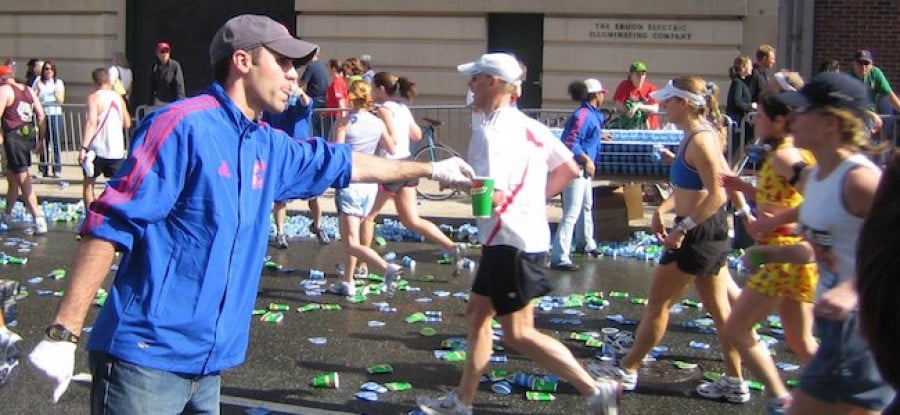What does the Social Action, Responsibility & Heroism Act 2015 mean for sports volunteers and NGBs?

The Social Action, Responsibility and Heroism Act 2015 (the "Act") 1 received Royal Assent on 12 February.2
According to the Ministry of Justice, this should be welcome news for millions of people who volunteer,3 with sports volunteering comprising the single biggest sector of volunteering in the UK.4 As highlighted by European 10,000m champion Jo Pavey, volunteers are “absolutely crucial”,5 since “volunteers and coaches make sport happen”,6 research indicating that sports volunteering in England has an estimated economic value of around £2 billion a year.7
The liability risks of volunteering
Perhaps alarmingly, however, evidence suggests that being worried about risk and liability is a significant reason for not volunteering.8 In particular, sports coaches appear increasingly concerned about the prospect of legal liability,9 with contemporary jurisprudence even asking why volunteers would be willing to become involved in sports coaching given the associated liability risks.10 Consequently, as with section 1 of the Compensation Act 2006,11 (more comment on which is below) the Act is intended to signify a strong message from the Government that persons will be safeguarded from unreasonable exposure to negligence liability or breach of statutory duty when acting for the benefit of society.
Importantly, given the extensive benefits derived from involvement in a wide range of sporting activities, the scope of this statutory provision should extend to “Everyday Sporting Heroes”. But, in reality, will volunteers such as sports coaches and instructors be better protected from litigation risk with the implementation of the Act?
The Remit of the 2015 Act
Lord Faulks summarised the core aim of the Act as:
“to provide reassurance to people who act in socially beneficial ways, behave in a generally responsible manner, or act selflessly to protect someone in danger by ensuring that the courts recognise their actions and always take that context into account in the event that something goes wrong and they are sued.”12
Although the Act’s title tells us that its focus extends beyond sport, as a socially desirable activity, oftentimes reliant on volunteering, there seems little doubt that sports-related activities can fall within its remit.
It is a short Act, comprising of just five sections. We will take each in turn:
Section 1, When this act applies, states:
"This Act applies when a court, in considering a claim that a person was negligent or in breach of statutory duty, is determining the steps that the person was required to take to meet a standard of care."
The important point here is that the Act requires the courts, when considering any claim that a person was negligent or in breach of statutory duty, to take into account each of the following three provisions when determining the steps that the person was required to take to meet the relevant standard of care.
Section 2, Social action, states:
"The court must have regard to whether the alleged negligence or breach of statutory duty occurred when the person was acting for the benefit of society or any of its members."
Section 3, Responsibility, states:
"The court must have regard to whether the person, in carrying out the activity in the course of which the alleged negligence or breach of statutory duty occurred, demonstrated apredominantly responsible approach towards protecting the safety or other interests of others."
This section, by requiring the court to have regard, when something goes wrong, to whether the person sued demonstrated a predominantly responsible approach towards protecting the safety or other interests of others, represents an actual change in the law. In making this change, Lord Faulks confirmed that the courts will be obliged to weigh in the balance whether a person had demonstrated a predominantly responsible approach when determining whether the defendant met the required standard of care. Significantly, the Minister of State for Justice continued, “[w]hile that does not rewrite the law in detail, it is a substantive change”.13
Section 4, Heroism, states:
"The court must have regard to whether the alleged negligence or breach of statutory duty occurred when the person was acting heroically by intervening in an emergency to assist an individual in danger and without regard to the person’s own safety or other interests."14
In summary, the four sections confirm the Act’s core aim, delineated by Lord Faulks, as being intended to provide reassurance to people acting: (i) in socially beneficial ways; (ii) in a predominantly responsible manner; or (iii) acting selflessly to protect someone in danger, by ensuring that the courts recognise, and account for, both the actions and context of the alleged negligence.15
To continue reading or watching login or register here
Already a member? Sign in
Get access to all of the expert analysis and commentary at LawInSport including articles, webinars, conference videos and podcast transcripts. Find out more here.
- Tags: Boxing | Compensation | Compensation Act 2006 | England | Football | Governance | Ireland | Liability | Regulation | Responsibility and Heroism Act 2015 | Rugby | Skiing | Social Action
Related Articles
- Does extreme sport equate to extreme liability for sponsors?
- When do sport teams' initiation ceremonies cross legal boundaries? Part 1
- When do sport teams' initiation ceremonies cross legal boundaries? Part 2
- Key sports law cases and developments to watch in 2015
Written by
Neil Partington
Neil is a Lecturer in Law at the University of Sussex. Prior to this, he gained his PhD and was a Research Fellow in Sports Law at Queen’s University Belfast. Neil has considerable experience in teaching and educational management and also holds an MSc in Sports Coaching.




